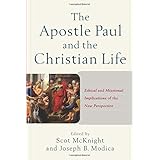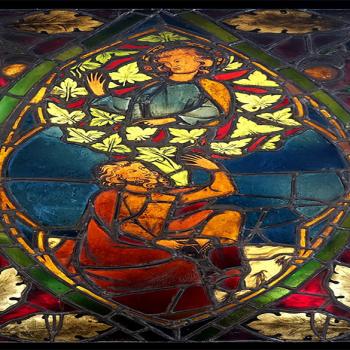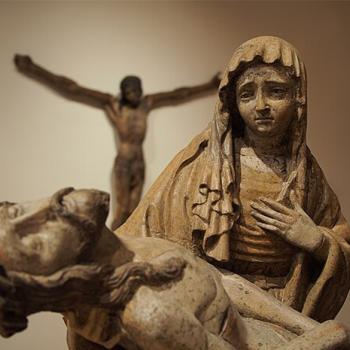 I just got my copy of The Apostle Paul and the Christian Life: Ethical and Missional Implications of the New Perspective edited by Scot McKnight and Joseph Modica.
I just got my copy of The Apostle Paul and the Christian Life: Ethical and Missional Implications of the New Perspective edited by Scot McKnight and Joseph Modica.
While the NPP debate is now a bit passe, esp. when the “apocalyptic Paul” and the “Paul within Judaism” views are now the center of attention, it is worthwhile to pause for a moment and think about the NPP contributed positively and practically to the church in terms of ethics and mission.
Generally speaking, I think Howard Marshall and Kevin Vanhoozer were right when they claimed that, generally speaking, the NPP was correct in what it affirmed but sometimes wrong in what it denied. So yes, Paul was responding to ethnocentrism, but even that can be related to nomism and merit theology; yes, works of the law did highlight the social identity of Jews, but these works were often regarded as the grounds for eschatological vindication in the future too by some Jews. Also scholars like Dunn and Wright have explained their views far more comprehensively and compellingly in recent years than they did in the beginning. Dunn’s 2005 essays The New Perspective on Paul is far better nuanced and restrained than his famous 1983 lecture “The New Perspective on Paul” and Wright’s mammoth PFG released in 2014 has a far more qualified and well-rounded discussion of justification than his scintillating but at times frustratingly terse 1997 volume What Saint Paul Really Said.
The best thing about the NPP was that it showed that Paul was not a Lutheran theologian trying to help conscience stricken Gentiles find a merciful God. Paul was dealing with vertical/eschatological realities of how Jews and Gentiles can be reconciled to God through Christ, but also the horizontal/covenantal dimension of how Jews and Gentiles worship God together in a single community. And it is the horizontal/covenantal side that Reformed theology has needed to appreciate and integrate since this aspect has been almost universally ignored.
Remember that the incident at Antioch (Gal. 2.11-14) was about people who wanted to segregate Gentiles at meals. That led to Paul’s forthright statement about justification by faith because being declared righteous comes not from the law but from faith in Christ (Gal. 2.15-21). The argument in Antioch was not simply about high brow theology, esoteric debates of doctrine, or philosophical theories. It was about whom we accept as equals and whom we are willing to invite to the table of the Lord. The men from James persuaded Peter to adopt a view of “equal but separate”. David Garland of Truett Seminary aptly captures the issue at Antioch (‘Paul’s Defense of the Truth of the Gospel Regarding Gentiles [Galatians 2:15–3:22],’ RevExp 91 [1994]: 170-71): “If there had been a church bus in Antioch, the Gentiles would always have had to move to the back. In the church building, one might find a Gentile water fountain and a Jewish water fountain; and the Gentiles would have had to sit in a special Gentile balcony section. Signs in various areas of the church might warn, “Jews Only, No Gentiles Allowed,” and the bulletin logo might announce “Separate but Equal in Christ,” In practice, however, the Gentile Christians were considered unfit for full equality. The compulsion was subtle but real. If Gentiles wanted to eat the Lord’s Supper with Cephas and the other Jewish Christians, they would have to do something to make themselves fit. They would have to become Jews, submit to circumcision and abide by Jewish dietary regulations. The truth of the gospel, as far as Paul was concerned, does not mix with his kind of compulsion.” If the Protestant churches have had some NPP flavour in their theology of justification, then racism would have been censured from the beginning, and multi-cultural churches would be the norm.
That is why I recommend this book, it has some great essays – including Dunn and Wright – and I think you should at least read Scot McKnight’s essay “The New Perspective and the Christian Life: The Ecclesial Life,” which is great on “The Reason I Affirm the New Perspective.”















